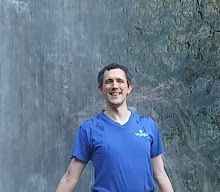Back in February, BYU's Prelaw Student Association sponsored a lecture by Judge James Taylor of the District Court for the Fourth District of Utah. Judge Taylor was a very intellectual, pragmatic individual who took his religion and his job very seriously. This being the case, I was very surprised by a comment he made somewhere in the middle of his talk. I'll paraphrase it like this: "I've never understood what is meant by the term activist judge. Speaking with a group of fellow judges, I found that they hadn't either. I don't understand what is meant by judicial activism."
This caused me a great deal of reflection at the time and has pushed me to research the topic a little. As a homeschooler and an active LDS, this topic is never very far off the radar. For example, California has been a particularly hot spot for judicial activists in recent years (i.e. the court case that all but made homeschooling illegal, the ruling overturning California marriage law and creating a constitutional right to gay marriage, etc.)
One of my first stops, of course, was wikipedia's page on the subject, which is remarkably light, considering all the activity in this vein. I found an interesting defense of judicial activism by a 1992 Cornell Ph.D., Sterling Howard. I'm still on chapter 1, but I'm looking forward to finishing the whole thing and perhaps improving some of the scant encyclopedic information on this very relevant issue.
A more thorough (and readable) historic look at the subject may be afforded by Paul O. Carrese's 2003 offering: The Cloaking of Power: Montesquieu, Blackstone, and the Rise of Judicial Activism. I was a little surprised to find that none of my three excellent local libraries carry a copy, but there's always Barnes and Noble. Stay tuned for more thoughts on this subject.
Thursday, March 25, 2010
Subscribe to:
Comments (Atom)
